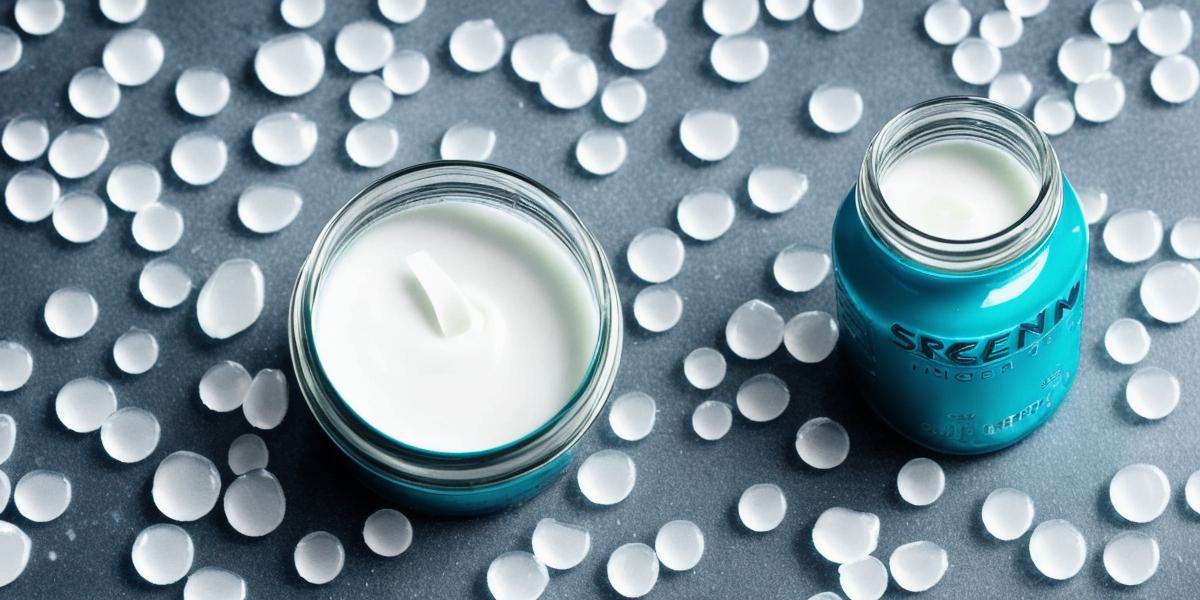Thinning Hair: Prevention and Management Strategies
Introduction:
Thinning hair is a common problem that affects millions of people around the world. It can be frustrating, especially for those who value their appearance. While there are various treatments available for thinning hair, such as hair restoration surgery or hair growth supplements, it’s important to first understand the causes of hair loss before seeking any treatment. In this article, we will explore some effective tips and strategies to prevent and manage thinning hair naturally. We will discuss common causes of hair loss, how to identify if you are experiencing hair loss, and various natural treatments that have been shown to work. Additionally, we will also touch upon the importance of proper hair care and nutrition in maintaining healthy hair.
Causes of Hair Loss:
Hair loss can be caused by a variety of factors, including genetics, stress, poor diet, lack of sleep, hormonal imbalances, and certain medical conditions. While some cases of hair loss may be out of your control, there are ways to manage and prevent it through lifestyle changes and proper care.
Identifying Hair Loss:
If you are concerned about hair loss, it’s important to identify the extent and cause of your hair loss. One way to do this is by pulling on a section of your hair. If the hair comes out easily, it may indicate that you are experiencing some form of hair loss. Additionally, looking at your scalp in the mirror can also give you an idea of how much hair you have lost. It’s important to note that hair loss can occur gradually, so it may be difficult to notice until it becomes more pronounced.
Natural Treatments for Hair Loss:
While there is no one-size-fits-all solution to thinning hair, there are several natural treatments that have been shown to work. Some of these include:
- Scalp Massage: Massaging your scalp can improve blood flow and stimulate hair growth. It’s recommended to massage your scalp for about 10 minutes every day using a natural oil or lotion. This can help to increase circulation, which may promote hair growth and reduce hair loss.
- Aloe Vera: Aloe vera is known for its soothing properties and can help to reduce inflammation on the scalp, which may contribute to hair loss. Applying aloe vera to your scalp before shampooing can be beneficial. You can mix aloe vera with a little bit of water to create a paste and apply it to your scalp for about 15 minutes before shampooing.
- Rosemary Oil: Rosemary oil has been shown to stimulate hair growth by increasing blood flow to the scalp. It’s recommended to mix a few drops of rosemary oil with a carrier oil and apply it to your scalp before shampooing. You can also add a few drops of rosemary oil to your bathwater for a relaxing soak that may promote hair growth.
- Pumpkin Seed Oil: Pumpkin seed oil has anti-androgen properties that may help to reduce hair loss caused by hormonal imbalances. It’s recommended to mix a few drops of pumpkin seed oil with a carrier oil and apply it to your scalp before shampooing. You can also add pumpkin seeds to your diet, as they are rich in nutrients that may promote healthy hair growth.
- Apple Cider Vinegar: Apple cider vinegar can help to balance the pH levels in your scalp, which may contribute to hair loss. It’s recommended to mix one tablespoon of apple cider vinegar with a cup of warm water and apply it to your scalp before shampooing. You can also add apple cider vinegar to your bathwater for a relaxing soak that may promote healthy hair growth.

Proper Hair Care and Nutrition:
In addition to natural treatments, proper hair care and nutrition can also play a significant role in managing and preventing thinning hair. Some tips include:
- Eating a Balanced Diet: A diet rich in nutrients such as protein, iron, and vitamins may promote healthy hair growth. Foods that are high in these nutrients include lean meats, fish, eggs, nuts, seeds, and leafy green vegetables.
- Staying Hydrated: Dehydration can contribute to hair loss. It’s important to drink plenty of water throughout the day to keep your body hydrated and promote healthy hair growth. You can also add coconut oil or olive oil to your hair to help maintain moisture levels.
- Avoiding Harsh Chemicals: Exposure to harsh chemicals such as chlorine, bleach, and peroxide may damage your hair and contribute to thinning. It’s important to avoid using these products on your hair, especially if you have already experienced hair loss.
- Getting Enough Sleep: Lack of sleep can contribute to hormonal imbalances and other health issues that may lead to hair loss. It’s recommended to get at least 7-8 hours of sleep per night to promote healthy hair growth and reduce the risk of hair loss.
- Managing Stress: Stress can also contribute to hair loss. It’s important to find ways to manage stress, such as through meditation, yoga, or other relaxation techniques.
Summary:
Thinning hair can be a frustrating problem for many people, but with the right knowledge and care, it can be managed and prevented. By identifying the cause of your hair loss, using natural treatments such as scalp massage and apple cider vinegar, and maintaining proper hair care and nutrition, you can keep your hair healthy and strong. Remember, it’s important to be patient and consistent with any treatment or care routine, as results may take time. With dedication and a little bit of effort, you can regain your confidence and enjoy healthy, full hair.



